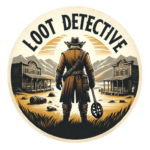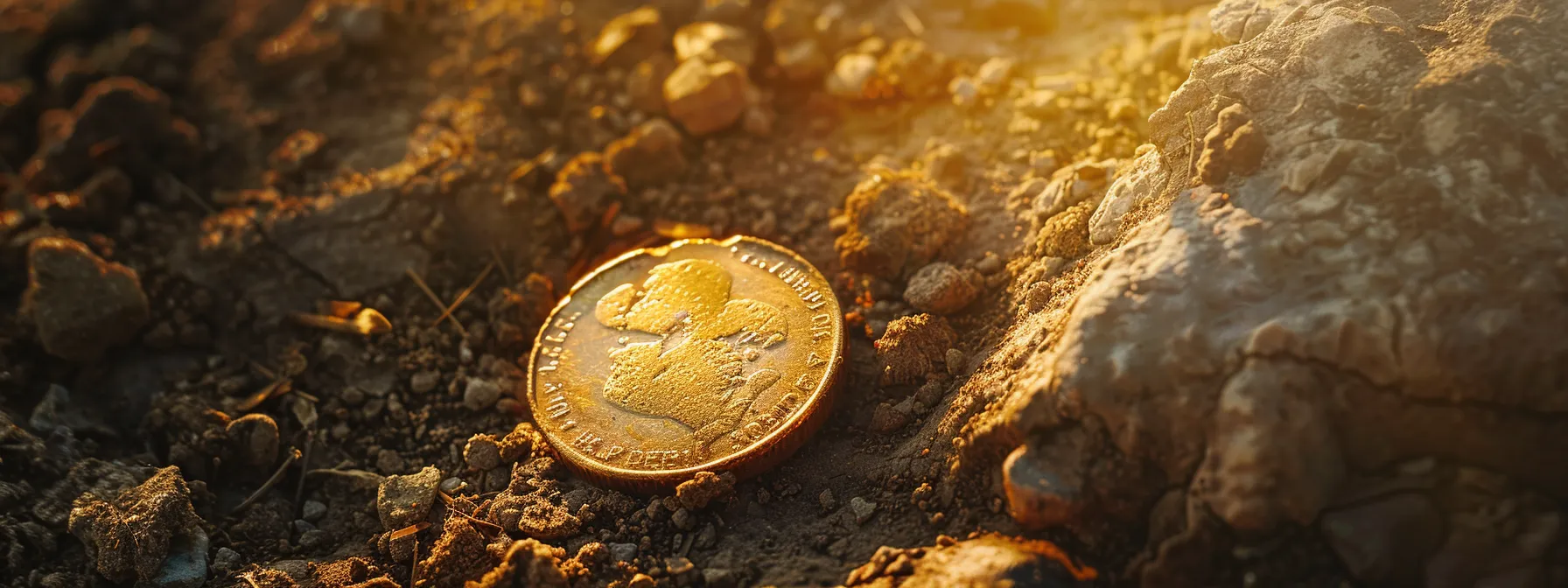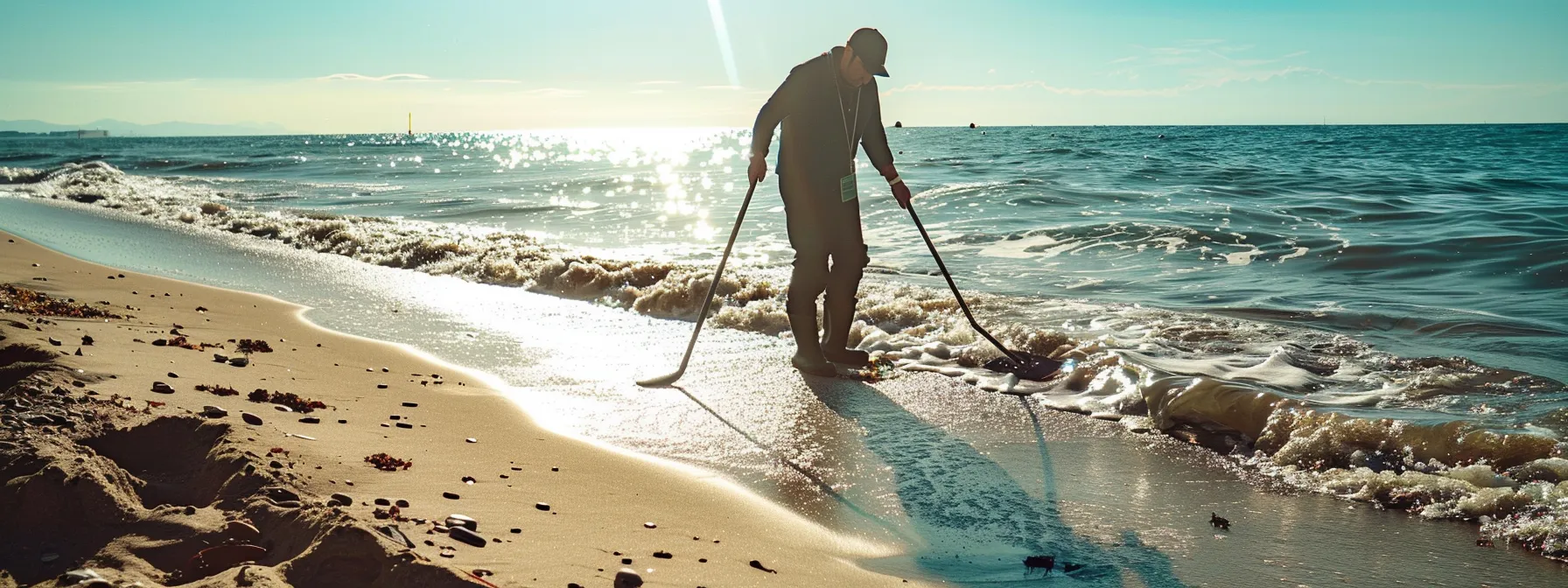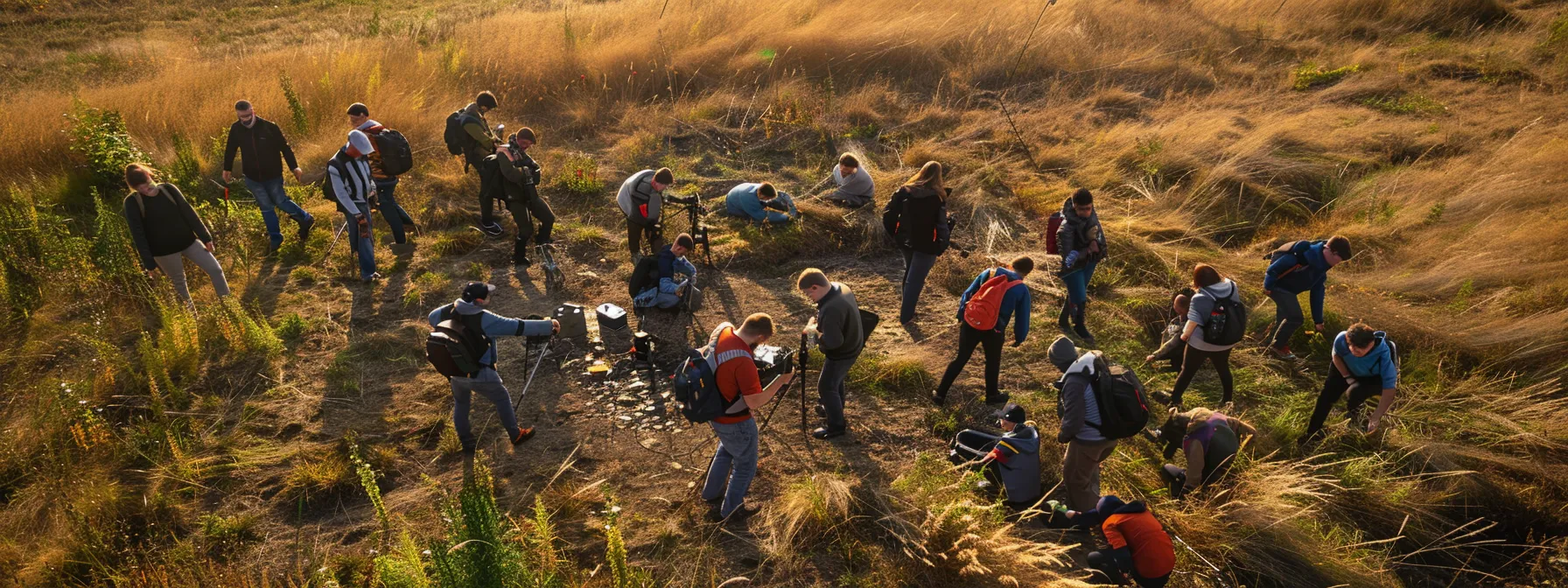
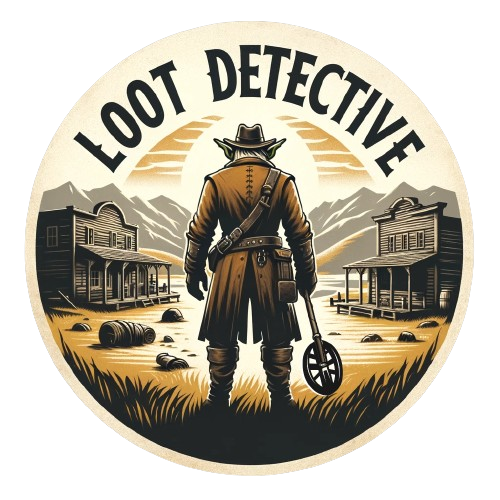
Are you interested in metal detecting but unsure where to start? Joining a metal detecting club can make a difference in your journey, especially if you’re in places like Indiana, Oregon, South Carolina, New Hampshire, or Staten Island. In this guide, you will learn how to find metal detecting clubs near you, the benefits of joining such a community, and how to get involved in club activities. Whether you’re looking to meet new friends or improve your skills, this content will help you connect with fellow enthusiasts quickly and easily.
Understanding the Benefits of Joining a Metal Detecting Club

Joining a metal detecting club offers numerous benefits that enhance your treasure hunting experience. You’ll connect with fellow enthusiasts passionate about metal detecting, such as those from Hampton Roads or East Texas, and gain access to exclusive detecting locations. Learning from experienced members, participating in organized events, and contributing to historical preservation are just a few advantages that elevate your gold prospecting activities.
Connecting With Fellow Enthusiasts
Joining a metal detecting club connects you with fellow enthusiasts who share your passion for hunting treasures. Whether you are in North Carolina or Idaho, being part of a community allows you to exchange tips, techniques, and stories that enhance your skills. You’ll find that experienced members can provide valuable insights into local laws and regulations regarding metal detecting, ensuring you remain compliant while enjoying your hobby.
Being involved in a metal detecting club not only fosters friendships but also opens doors to group outings and organized events. These gatherings often provide access to exclusive detecting sites where you can use your metal detector in a supportive environment. Engaging with like-minded individuals makes the hunting experience more enjoyable and encourages you to learn and grow as a detectorist, maximizing your chances of uncovering hidden gems.
Accessing Exclusive Detecting Locations
Joining a metal detecting club opens the door to exclusive detecting locations that may not be accessible to the general public. In regions like Kentucky and Maryland, clubs often establish partnerships with landowners or local authorities, allowing members to explore historical sites where significant archaeological finds have occurred. These dedicated areas can increase your chances of discovering valuable items, such as coins or hoards, enhancing your treasure hunting experience.
Moreover, being part of a community in states like Oklahoma provides opportunities to participate in organized digs at specially chosen sites. These events not only focus on finding treasures but also emphasize the importance of archaeology and preserving local history. By joining a metal detecting club, you gain access to these unique locations while also connecting with other enthusiasts, making your adventures more productive and enjoyable.
Learning From Experienced Members
Learning from experienced members in a metal detecting club can significantly enhance your skills and knowledge. For example, if you join a club in New Jersey or Central Florida, you can connect with seasoned detectorists who can share valuable tips about where to find silver or relics in your area. Their practical insights can help you avoid common mistakes while improving your ability to identify promising treasure sites.
Moreover, experienced members can provide guidance on the best equipment and techniques for your specific location. They may offer hands-on demonstrations and share stories of their successful hunts, which can inspire you as you embark on your own treasure hunting journey. By engaging with this knowledgeable community, you can discover new strategies and insights that will make your metal detecting efforts more fruitful and enjoyable.
Participating in Organized Events
Participating in organized events through a metal detecting club can greatly enhance your prospecting experience. In areas like Illinois or Hampshire, these events often give you the opportunity to explore new locations that might have rich histories. For instance, participating in a treasure hunt event near Mount Diablo could lead to exciting discoveries, as clubs often choose sites known for previous finds, increasing your chances of success.
Moreover, events held in places like Cleveland connect you with other metal detecting enthusiasts, allowing you to share experiences and techniques. These gatherings can also include competitions and workshops that boost your skills in identifying valuable items. By engaging in organized outings, you build camaraderie within the club while also elevating your own treasure hunting abilities, making every event a rewarding experience.
Contributing to Historical Preservation
Joining a metal detecting club in Rhode Island allows you to actively contribute to historical preservation efforts. Many clubs work closely with local historians and archaeologists to identify and protect significant sites, ensuring that valuable artifacts are documented and properly preserved for future generations. By participating in these initiatives, you not only enhance your own skills but also play an essential role in safeguarding your region’s heritage.
Moreover, engaging in metal detecting as a community fosters a sense of responsibility among members to respect and protect historical locations. When you uncover items of historical significance, reporting them to clubs or authorities helps maintain the integrity of archaeological sites. This ethical approach not only enhances your reputation as a responsible detectorist but also strengthens the collective impact of metal detecting clubs in promoting the importance of preserving history in your area.
How to Find Metal Detecting Clubs Near You

To find metal detecting clubs near you, start by searching online directories and forums where enthusiasts gather. Visiting local hobby shops often leads to recommendations, while attending community events can connect you with like-minded individuals. Additionally, checking social media platforms and contacting national organizations can provide valuable resources. These approaches will help you discover active communities that share your passion for treasure hunting.
Searching Online Directories and Forums
Searching online directories and forums is an effective way to find metal detecting clubs in your area. Websites dedicated to metal detecting often list clubs by region, allowing you to easily discover local options. By joining these forums, you can engage with fellow enthusiasts who can share valuable information about nearby clubs and their activities.
Additionally, participating in these online communities gives you access to advice and experiences from seasoned detectorists. You might encounter discussions about upcoming events or organized hunts that local clubs are hosting. This engagement not only helps you find clubs but also connects you with individuals who share your passion for treasure hunting, enhancing your overall experience in the field.
Visiting Local Hobby Shops
Visiting local hobby shops can be a great way to discover metal detecting clubs in your area. These shops often serve as a hub for enthusiasts, making them an ideal place to meet like-minded individuals. You can ask the staff for recommendations on clubs that meet regularly or compare notes with fellow shoppers about their experiences in treasure hunting.
In addition to finding clubs, local hobby shops may host events or workshops focused on metal detecting. Engaging in such activities can not only enhance your skills but also connect you with potential club members. By participating in these community gatherings, you create valuable relationships that can lead to exciting group outings and shared treasure–hunting adventures.
Attending Community Events
Attending community events is a great way to discover metal detecting clubs in your area. Whether the event is a local fair, a historical reenactment, or an outdoor market, you can often find fellow metal detecting enthusiasts who share their knowledge about nearby clubs and activities. Engaging in these events not only introduces you to people with similar interests but also helps you learn about the exciting possibilities for treasure hunting in your community.
By participating in community gatherings, you may have the chance to join clubs or sign up for organized metal detecting outings. Events often include demonstrations or workshops that can enhance your skills and knowledge of equipment. This active involvement allows you to build a network of enthusiasts who can support your metal detecting journey and help you find hidden gems around your area.
Checking Social Media Platforms
Checking social media platforms can significantly help you find metal detecting clubs in your area. Many local clubs have dedicated pages or groups where members share experiences, post events, and discuss techniques. By joining these online communities, you can gain insights into what each club offers and connect with other metal detecting enthusiasts who share your passion.
Additionally, engaging with posts and conversations on social media allows you to ask questions about nearby clubs and upcoming events. You may discover special gatherings or treasure hunts that are not widely advertised. This interaction can also provide a sense of the club’s culture, helping you choose a community that aligns with your interests and goals in metal detecting.
Contacting National Organizations
Contacting national organizations can be an effective way to find metal detecting clubs in your area. These organizations often have directories or databases that list local clubs, making it easier for you to connect with groups that align with your interests. For instance, reaching out to the Federation of Metal Detecting and Archaeological Clubs can provide insights into active clubs near you, along with information about events and best practices in the hobby.
Moreover, national organizations frequently offer resources and support to local clubs, fostering a sense of community among enthusiasts. By contacting these organizations, you can gain access to valuable educational materials, workshops, and networking opportunities. This connection enhances your metal detecting experience and helps you build relationships with other treasure hunters, enriching your journey in the field.
Choosing the Right Club for Your Interests

When choosing the right metal detecting club for your interests, start by evaluating membership requirements to ensure a good fit. Consider the club’s activities and focus to find one that aligns with your goals. Review meeting schedules and locations for convenience, understand club rules and etiquette, and speak with current members to gain insights. These steps will help you make an informed decision and enjoy your treasure hunting adventures.
Evaluating Membership Requirements
When evaluating membership requirements for metal detecting clubs, start by reviewing their criteria for joining. Some clubs may require you to own specific equipment or have a certain level of experience in metal detecting, while others welcome beginners. Understanding these requirements helps you decide if the club is the right fit for your treasure hunting journey and ensures that you can engage in their activities without any obstacles.
Additionally, consider the commitment level expected from members in terms of participation and fees. Some clubs might have annual dues or requests for volunteers during events, which can impact your decision. By assessing these factors, you can find a club that aligns with your interests and lifestyle, allowing you to enjoy the benefits of being part of a metal detecting community while enhancing your skills and knowledge.
Considering Club Activities and Focus
When selecting a metal detecting club, consider the specific activities and focus areas that align with your interests. Some clubs may specialize in relic hunting, while others emphasize coin shooting or historical archaeology. By understanding what each club offers, you can find one that meets your goals, whether you want to hunt in local parks, participate in competitions, or contribute to archaeological research.
Additionally, look at the types of events the club hosts, as they can vary significantly. Some clubs may organize regular group digs, which provide opportunities for hands-on experience and learning from seasoned members. If you are interested in more structured activities, ensure that the club plans outings that align with your treasure–hunting enthusiasm, helping you maximize your enjoyment and knowledge in the field.
Reviewing Meeting Schedules and Locations
When choosing a metal detecting club, reviewing meeting schedules and locations is essential. Check if meetings occur at convenient times that fit your schedule, as consistent participation can deepen your engagement and ensure you stay updated on club activities. Additionally, consider the meeting locations—is the club situated close to you, or are there other accessible venues where you can meet fellow enthusiasts?
Many clubs have regular gatherings, which may include workshops, social meetups, and planning sessions for upcoming digs. Attending these meetings can enhance your treasure–hunting skills through shared experiences and knowledge. By finding a club with a meeting schedule and location that works for you, you’re more likely to participate actively and enjoy the benefits of being part of a metal detecting community.
Understanding Club Rules and Etiquette
Understanding club rules and etiquette is crucial when choosing the right metal detecting club for your interests. Most clubs have established guidelines that promote respect and safety among members, such as proper conduct in the field and respecting private properties. By familiarizing yourself with these rules, you ensure a positive experience and contribute to a welcoming environment for all enthusiasts.
Moreover, adhering to etiquette not only enhances your interactions with fellow members but also reflects your professionalism as a detectorist. Simple gestures, such as being punctual for meetings and participating actively in club activities, help you build rapport with others. Engaging with your club in a courteous manner demonstrates your commitment to the hobby and fosters meaningful connections within your local metal detecting community.
Speaking With Current Members
Speaking with current members of a metal detecting club is a valuable step in your decision-making process. Engaging in conversations with them can provide you with insights into the club’s culture, activities, and focus areas. For instance, you might learn about their most popular detecting sites or the types of events they organize, helping you determine if the club aligns with your interests in treasure hunting.
Moreover, current members can share their experiences and personal stories, which can give you a clearer picture of what to expect. By asking questions about how they got started and their favorite aspects of the club, you can gain practical advice and tips that will enhance your own metal detecting journey. These insights will empower you to make an informed choice that best suits your needs and interests.
Getting Involved in Club Activities

Getting involved in club activities is a great way to enhance your metal detecting experience. You can join group hunts and expeditions, attend educational workshops, and participate in community service projects. Sharing your finds and stories with fellow members, while networking with others passionate about treasure hunting, fosters connections that enrich your hobby and broaden your knowledge.
Joining Group Hunts and Expeditions
Joining group hunts and expeditions is a rewarding way to enhance your metal detecting experience. These organized outings often take you to sites rich in history, where you can uncover hidden treasures alongside fellow enthusiasts. Participating in these hunts allows you to learn from others, share techniques, and enjoy the excitement of discovering valuable items together.
Moreover, group hunts foster a sense of camaraderie within the metal detecting community. You will connect with individuals who share your passion, making your treasure hunting adventures more enjoyable. These outings not only boost your confidence and skills but also create lasting friendships, ensuring you have a supportive network as you continue your journey in metal detecting.
Attending Educational Workshops
Attending educational workshops offered by metal detecting clubs can significantly enhance your skills and confidence in the field. These workshops often cover essential topics such as equipment usage, techniques for identifying valuable items, and the importance of local laws regarding metal detecting. By participating in these hands-on sessions, you gain practical knowledge that directly improves your treasure hunting success.
In addition to skill development, workshops provide an opportunity for networking with experienced detectorists who can share tips and insights specific to your area. You’ll connect with fellow enthusiasts, allowing you to discuss challenges you face and learn from others’ experiences. This collaborative environment fosters a sense of community and support that makes your journey in metal detecting more enjoyable and rewarding.
Participating in Community Service Projects
Participating in community service projects with your metal detecting club is an excellent way to give back while enhancing your skills. These projects often involve recovering historical artifacts or helping to clean up local parks, allowing you to contribute to the preservation of heritage sites. Not only do you have the chance to uncover valuable finds, but you also engage with your community, fostering relationships among fellow club members who share your passion for treasure hunting.
Involving yourself in community service projects can also provide opportunities to learn from experienced detectorists about best practices and ethical digging techniques. You’ll connect with local historians and archaeologists, gaining insight into how your finds contribute to broader historical understanding. This engagement not only enriches your hobby but supports the larger goal of historical preservation, making your metal detecting experience more meaningful and rewarding.
Sharing Finds and Stories
Sharing your finds and stories with fellow metal detecting club members is a valuable aspect of participating in club activities. It creates an engaging environment where you can showcase unique discoveries, whether it’s an old coin or a fascinating relic. This exchange of experiences not only strengthens community bonds but also boosts your confidence as you receive feedback and advice that can enhance your future treasure–hunting endeavors.
Moreover, storytelling about your adventures helps others learn from your experiences, including successful techniques or challenges you faced while detecting. By discussing your findings in club meetings or online forums, you foster a supportive atmosphere that encourages others to share their own stories. This collaborative approach not only enriches your knowledge but also inspires everyone in the community to pursue their metal detecting passions with renewed enthusiasm.
Networking With Members
Networking with members of your local metal detecting club can significantly enrich your treasure hunting experience. By engaging with fellow detectorists, you not only exchange tips and techniques but also build lasting friendships that enhance your involvement in the hobby. These connections can introduce you to group outings, organized digs, and exclusive events, making your adventures more enjoyable and successful.
Additionally, getting to know club members allows you to tap into their wealth of experience and knowledge. They can offer insights into valuable local detecting spots, best practices for ethically finding treasures, and recommendations for effective equipment. This camaraderie fosters a supportive environment where you can share your successes and challenges, helping you grow as a skilled detectorist in your community.
Starting Your Own Metal Detecting Community

Starting your own metal detecting community begins with gauging interest in your area and setting up initial meetings. You’ll need to establish club goals and guidelines that reflect members’ interests while promoting your club locally to attract more enthusiasts. Building partnerships with organizations can also enhance your community and provide valuable resources. Each of these steps will help create a strong foundation for your metal detecting club.
Gauging Interest in Your Area
To gauge interest in metal detecting in your area, consider reaching out to local hobby shops or community centers. These venues often have bulletin boards or groups where enthusiasts gather, making them perfect places to promote your idea for a club. Engaging with potential members can help you understand what they are looking for in a metal detecting community, shaping your club’s focus and activities accordingly.
Additionally, social media platforms can be effective tools for assessing local interest. Creating a simple poll or discussion group allows you to interact with others passionate about metal detecting. By presenting an opportunity to share experiences and techniques, you can spark enthusiasm and gain insight into how many people would be interested in joining your new metal detecting club.
Setting Up Initial Meetings
To set up initial meetings for your metal detecting community, choose a convenient location that encourages participation, such as a local park or community center. You can create a welcoming atmosphere by providing refreshments and setting up a simple agenda to discuss interests, goals, and potential activities of the group. This will help everyone feel comfortable sharing their thoughts and ideas, ensuring that the meeting addresses the needs of both new and experienced detectorists.
Promote your initial meetings through social media and local hobby shops to attract a diverse range of participants who are enthusiastic about metal detecting. Encourage attendees to bring their metal detectors and share their stories, which can foster a sense of belonging and encourage future collaboration. By making these gatherings interactive and engaging, you can build a strong foundation for your metal detecting club and keep members excited about upcoming events and adventures in treasure hunting.
Establishing Club Goals and Guidelines
Establishing clear club goals and guidelines is crucial for creating a successful metal detecting community. Start by defining the mission of your club, whether it’s focused on recreational detecting, historical preservation, or education. Making these objectives clear will help attract like-minded members who share your interests in treasure hunting and ensure everyone is on the same page regarding the club’s direction.
In addition to goals, set essential guidelines that promote respect and safety among members. Outline expectations for conduct during hunts, such as obtaining permissions for detecting on private property and following local regulations. These guidelines will not only foster a positive atmosphere but also encourage responsible practices, making your metal detecting community an enjoyable and sustainable environment for everyone involved.
Promoting Your Club Locally
To promote your metal detecting club locally, focus on creating engaging content that highlights the exciting aspects of the hobby. Utilize social media platforms to share photos of your group outings, success stories, and upcoming events. By showcasing your club’s activities, you can attract individuals who share your passion for treasure hunting and spark their interest in joining.
Additionally, consider collaborating with local businesses and hobby shops to display flyers or host small events that introduce your club to a broader audience. Offering workshops or informational sessions can provide valuable insights into metal detecting, drawing in those curious about the activity. This strategy not only raises awareness about your club but also builds a supportive community that fosters connections among enthusiasts in your area.
Building Partnerships With Organizations
Building partnerships with local organizations can significantly enhance your metal detecting community. Collaborating with historical societies, archaeological groups, or educational institutions allows you to access valuable resources and expertise. For example, working with a local museum may provide opportunities for joint events, where members can showcase their finds and learn about local history, thus enriching the metal detecting experience for everyone involved.
Additionally, these partnerships can foster awareness and support for your club within the broader community. Engaging with city councils or community centers can help you secure permissions for detecting in public areas or historical sites. By demonstrating a commitment to preserving local history and promoting responsible metal detecting practices, you can attract more enthusiasts and create a solid foundation for your metal detecting community.
Enhancing Your Hobby Through Community Engagement

Enhancing your hobby through community engagement is crucial for your growth as a metal detectorist. By collaborating with fellow enthusiasts, you can improve your skills and stay informed on regulations. Access to shared resources and equipment often makes the treasure hunting experience more enjoyable, while contributing to archaeological discoveries deepens your connection to history. You’ll also build long-lasting friendships that make every hunt more memorable.
Improving Skills Through Collaboration
Collaborating with fellow metal detecting enthusiasts is a powerful way to enhance your skills in this rewarding hobby. By participating in group outings and sharing experiences with other detectorists, you can learn new techniques and gain insights into effective treasure hunting strategies. For example, observing how others use their equipment can provide you with practical advice on improving your own methods, allowing you to maximize your potential in detecting valuable finds.
Additionally, discussing different sites and local regulations with experienced club members can further deepen your understanding of best practices in metal detecting. Engaging in these collaborative environments not only boosts your confidence but also helps you make connections that can lead to future group hunts and discoveries. In this way, being part of a metal detecting community fosters a supportive network that encourages growth and skill development in your treasure hunting pursuits.
Staying Informed on Regulations
Staying informed on regulations is crucial for responsible metal detecting. As you explore your passion for treasure hunting, understanding local laws helps you avoid legal issues and ensures you respect property boundaries. Joining a metal detecting club can connect you with experienced members who provide insights on the specific regulations in your area, including whether you need permits for certain sites.
Additionally, many metal detecting communities hold informational sessions about regulations and best practices. Participating in these discussions enhances your awareness of essential guidelines and current changes in the law, which can affect your detecting activities. This proactive approach helps you enjoy your hobby safely and ethically, while fostering a sense of responsibility within the metal detecting community.
Accessing Shared Resources and Equipment
Accessing shared resources and equipment through a metal detecting club can greatly enhance your hobby. Many clubs offer opportunities for members to borrow tools like metal detectors, digging tools, and even specialized equipment for specific types of treasure hunting. This accessibility allows you to try different tools without the financial commitment of purchasing them outright, empowering you to explore various techniques and methods that can increase your chances of finding valuable items.
Additionally, engaging in a community often leads to resource-sharing among members, which can include everything from expert advice to group discounts on equipment. By connecting with fellow enthusiasts, you can gain insights into the best products and practices in metal detecting. This not only improves your skills but also fosters a collaborative environment where sharing knowledge and resources becomes standard, making your treasure–hunting experiences more fulfilling.
Contributing to Archaeological Discoveries
By joining a metal detecting club, you have the opportunity to actively contribute to archaeological discoveries in your area. Many clubs collaborate with local historians and archaeologists to locate and preserve historical artifacts. As a member, you participate in organized digs where your discoveries can help expand the understanding of your local history and protect valuable cultural heritage.
Your role in contributing to archaeological finds is not just about treasure hunting; it’s about being a responsible detectorist who respects the significance of the items unearthed. When you locate an artifact, reporting it to your club or local authorities ensures that these discoveries are documented properly. This helps safeguard important historical sites while allowing you to engage with a community that values both the hobby and the preservation of history.
Building Long-Lasting Friendships
Building long-lasting friendships in a metal detecting club enhances your overall experience and enjoyment of the hobby. When you join a community of like-minded individuals, you create bonds through shared adventures and discoveries. Whether you’re celebrating a successful find or seeking advice on detecting techniques, having supportive friends makes your treasure hunting even more rewarding.
Engaging with fellow enthusiasts allows you to exchange stories, techniques, and tips, fostering deeper connections over time. Participating in club events and outings provides opportunities to form these friendships, as you work together toward common goals. By creating lasting relationships with others who share your passion for metal detecting, you not only enhance your skills but also enrich your personal life with a network of supportive friends.
Conclusion
Discovering metal detecting clubs and communities in your area significantly enhances your treasure hunting experience. By connecting with other enthusiasts, you gain valuable insights, access exclusive locations, and foster friendships that enrich your journey. Engaging in organized events and learning from experienced members equips you with the skills to find hidden treasures while contributing to local history preservation. Ultimately, joining a metal detecting community empowers you to enjoy your hobby fully and responsibly, creating memorable adventures along the way.
